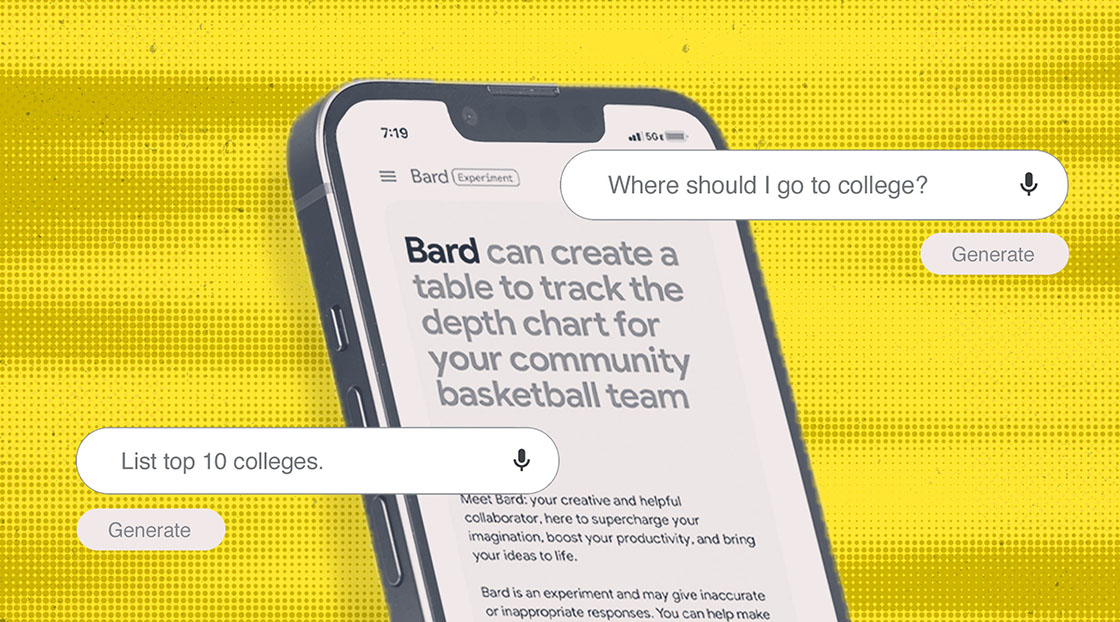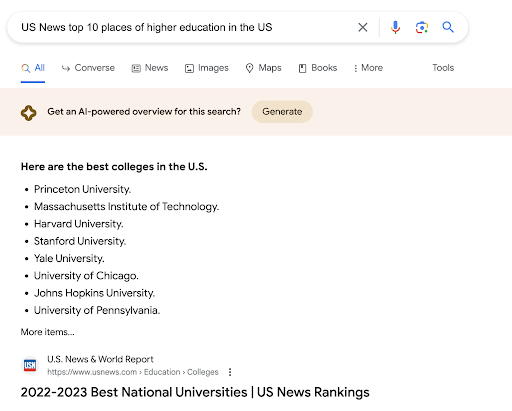A few matching results, but not at all on the same list.
Google itself describes its generative AI search tool by saying “With generative AI in Search, we can help you understand the full picture when you’re shopping, making even the most considered and complex purchase decisions faster and much easier.”
Purchasing a higher education opportunity is a very complex decision. ‘Complexity’ is exactly the word used in “The Big Decision: The Complexity of Choosing a College,” a May 2023 story by the Thomas Worthington High School student newspaper
In higher ed marketing and communications we know—know—that prospective students are making a considered and complex purchasing decision. It’s why we do what we do every single day to recruit and retain students. Every moment of our workday goes into writing, designing, sharing, posting and engaging with content to help them make that complex choice.
But what if—no, let me change that—but what about when a machine-learning model does our work for us? It’s not us against the machines. This isn’t a piece about that. It’s us with the machines.
How can we optimize for generative AI search?
We don’t know.
We just don’t.
What we do know right now is that higher education marketers must (let’s make that a capital-M) Must start thinking about it and preparing for it. At the very least, they must start talking about it with their teams. “Google’s and Bing’s embrace of generative AI will transform search engine optimization,” Practical Ecommerce wrote in a May 29, 2023 blog post.
So here we are asking, okay, things are going to change, what can we do to start changing our carefully constructed and approved web pages to take into account the rise of generative AI search?
Here are five suggestions that in a month may seem terribly outdated, but again, we just don’t know.
First off, thanks for reading this. You could have simply asked a generative AI tool to answer this question, and it would have. But that’s the first of the five suggestions.







